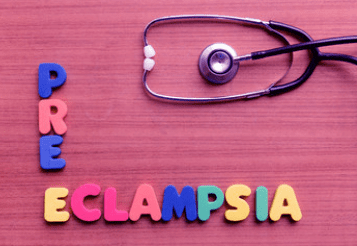May is Pre-eclampsia Month, a time to empower all women about the dangers of this very deadly disease. It has claimed the lives of many women, including the grandmother of Vanessa Williams. Although it has been described as far back as the days of Hippocrates, we still don’t have a cure in the 21st century.
Pre-eclampsia is a condition that involves high blood pressure, swollen feet or ankles and protein in a pregnant woman. It can occur anytime after 20 weeks but usually develops in the third trimester and affects up to 7.5% of pregnant women worldwide. Why is it so dangerous? Because the blood pressure can reach such high levels that a woman can have a seizure or a stroke and die. It can also reoccur for up to 6 weeks after the baby is born, is frequently and regretfully often misdiagnosed. How is it treated? By delivering the baby and therein lies the dilemma. Sometimes it occurs so early that some healthcare providers will either miss the diagnosis or are hesitant to deliver the baby because of its prematurity. The baby has to be delivered because the placenta is abnormal and must be removed.
- A severe headache that doesn’t going away with acetaminophen needs an immediate blood pressure check.
- Blurry vision needs an immediate blood pressure check
- A blood pressure of greater than 120/80 needs the attention of a doctor immediately
- Swollen hands, feet or a puffy face, needs the immediate attention of a doctor
- If you’ve developed 5 pounds in one week, see your doctor immediately
- If you had pre-eclampsia during childbirth, are sent home and develop blurry, vision or a headache, call your doctor immediately
- If you had pre-eclampsia during childbirth, are sent home and develop shortness of breath, return to the hospital immediately
- If you had pre-eclampsia during childbirth and are sent home, you should have a repeat blood pressure check at your doctor’s office in one week for follow-up
- If you had pre-eclampsia during childbirth and are sent home with a blood pressure that’s greater than 120/80, you should either have been given a prescription for medication or a return appointment to see your doctor in 2 to 3 days for follow-up
-  If you’re blood pressure keeps going up during your pregnancy and your clinician doesn’t do anything about it, ask for a referral to see a high-risk specialist (aka maternal fetal specialist)
Remember, a healthy pregnancy doesn’t just happen. It takes a smart mother who knows what to do.




